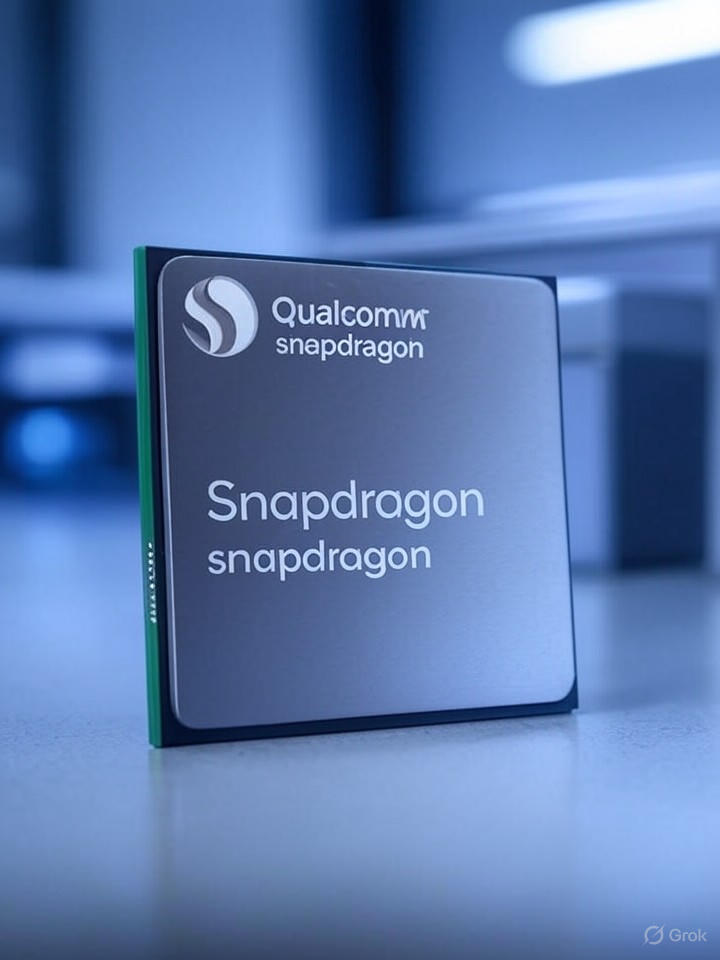As the artificial intelligence sector hurtles toward 2025, industry analysts are buzzing with predictions about which companies will dominate the next wave of innovation, particularly in edge computing and smart devices. A recent article from Yahoo Finance posits that Qualcomm stands poised to lead this charge, leveraging its expertise in chip design to power the era of intelligent, on-device AI processing. This shift away from cloud-dependent models could redefine everything from smartphones to autonomous vehicles, enabling faster, more private data handling without constant internet reliance.
Qualcomm’s Snapdragon processors, already integral to billions of devices, are evolving to incorporate advanced neural processing units that handle AI tasks locally. This “edge AI” approach addresses growing concerns over latency and data security in cloud-based systems, as highlighted in Microsoft’s recent trends report. According to insights from Microsoft News, by 2025, we can expect a surge in multimodal AI systems that integrate vision, speech, and sensor data seamlessly, with Qualcomm’s chips at the forefront of this integration in consumer electronics.
Edge AI’s Rising Dominance in Device Ecosystems
Delving deeper, Qualcomm’s strategic partnerships with tech giants like Samsung and Google underscore its potential. The company’s recent announcements at CES 2025, as reported by TechCrunch, reveal chips capable of running generative AI models on-device, reducing power consumption by up to 40% compared to predecessors. This efficiency is crucial for battery-powered gadgets, positioning Qualcomm to capture a larger share of the burgeoning AI hardware market, projected to reach $200 billion by 2030 per PwC’s AI predictions.
However, challenges loom. Competition from Nvidia and Intel intensifies, with Nvidia’s focus on high-end GPUs for data centers contrasting Qualcomm’s mobile-centric strategy. Yet, as Financial Times notes in its 2025 AI outlook, the momentum for large-scale models may wane, giving way to specialized, efficient solutions like Qualcomm’s that thrive in edge environments. Industry insiders point to Qualcomm’s acquisition of AI startups as a savvy move to bolster its IP portfolio.
Predictions from Industry Leaders and Market Shifts
Elon Musk’s bold forecasts, shared via posts on X, suggest AI could surpass human intelligence by 2026, fueling demand for robust edge computing to manage real-time decisions in robotics and IoT. This aligns with Forbes’ 2025 AI 50 list, which ranks Qualcomm among top innovators for its on-device AI advancements. Meanwhile, a Motley Fool prediction envisions Nvidia hitting $10 trillion valuation by 2030, but Qualcomm’s niche in smart devices could carve out a trillion-dollar opportunity of its own.
Looking ahead, regulatory pressures on data privacy, such as Europe’s GDPR expansions, will accelerate edge AI adoption. Google’s August 2025 AI updates, detailed in their blog, emphasize hybrid models where edge processing complements cloud AI, potentially benefiting Qualcomm’s ecosystem. Analysts from McKinsey, as echoed in X discussions, predict 92% of executives increasing AI budgets, with a focus on agentic systems that Qualcomm’s hardware could empower.
Investment Implications and Future Trajectories
For investors, Qualcomm’s stock trajectory hinges on its ability to monetize AI beyond traditional telecom. Recent earnings calls reveal a 30% revenue bump from AI-enabled chips, per Yahoo Finance data. Yet, supply chain vulnerabilities, amid global chip shortages, pose risks, as warned in Artificial Intelligence News reports.
Ultimately, as 2025 unfolds, Qualcomm’s role in powering smarter, more autonomous devices could mark a pivotal evolution in AI. With trends pointing to decentralized intelligence, this company’s innovations may not only drive the next generation of gadgets but also reshape how we interact with technology in an increasingly connected world.
